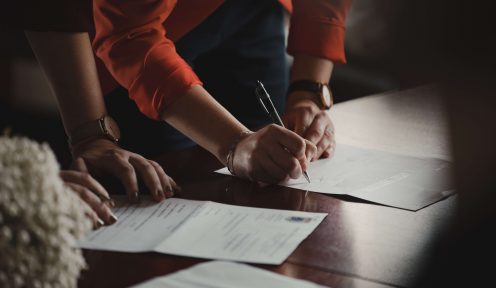
25.02.2018
Is it legal to record a conversation? Under what circumstances?
 Por
Ortega Lopez-Bago , Francisco Javier
Por
Ortega Lopez-Bago , Francisco Javier The massive emergence of mobile devices and the versatility of functions that these devices offer, has incorporated, among many others, a new habit of social behavior: Recording. Whether it is an exhibition, call, or declaration; recording is a capability that is increasingly accessible, effortless and is therefore used more frequently.
The act of recording a conversation does not escape these new faculties. Whether as a simple record, or as an eventual means of proof, the truth is that even today it is unclear as to whether it is lawful to record a conversation or whether it could lead to negative consequences.
Before addressing the primary issue regarding the legality of recordings, it is important to understand that there are different types of recordings. The legality of which differs depending on whether the recording is one’s own or from a third party.
<< Own Audio Recordings vs Foreign Audio Recordings >>
Thus, recordings are classified as either one’s own or those of others. An own recording is classified as one that is made when the person is inside the conversation, while recordings of others are classified as those that have been recorded by third parties that do not belong to the conversation.
From the legal point of view, it is valid to record a conversation as long as it is a recording of one’s own, that is, whoever is recording is also an active subject and participant in said recording. The validity of this type of recording of conversation lies in the fact that the person who publicizes the conversation is also the person who issued it, and the person that is recorded has voluntarily agreed to have that contact, understanding that they are responsible for the expressions and content within the conservation.
On the contrary, the recordings of others will always be illegal because they violate the Fundamental Right to the Secrecy of Communications, established in Article 18.3 of the Spanish Constitution. Since, the unauthorized third party has interfered with the message and has been made aware of the content of the conversation that other people are discussing.
Is a recording a valid test?
Intimately related to the question in regards to the validity of recordings, another question arises. Can these recordings be used as a means of proof of defense in a trial? Jurisprudentially, the courts admit recordings as a means of proof as long as a series of requirements are met:
- That there is no provocation, deceit or coercion from the subject who records.
- That the subject who records plays an active part of the conversation, being a participant in it.
- That the conversation be recorded in a public place.
- If the conversation is recorded in a private place, there is authorization or consent from the owner.
Even if all of these requirements are met, normally, the opposition will try to use myriad of arguments to annul this means of proof. One of the most frequent allegations is often the violation of the Data Protection Law, for not having obtained the necessary consent for the treatment of data obtained in the recording. That being said, the Data Protection Act itself exempts a person from the need for consent when the data obtained in the recording is intended to satisfy a legitimate interest. Which in this case, is in the need to prove the validity of a conversation in a judicial proceeding. Thus, the recording, if submitted before trial and accepted by the court can be used as a means of proof during trial.
Conclusion
In conclusion, a conversation can be recorded as long as the subject who records it is part of it, and in addition, this recording can also be presented as a means of proof in a judicial proceeding if the requirements cited above are met.
Contacto No te quedes con la duda, contacta con nosotros. Estaremos encantados de atenderte y ofrecerte soluciones.











